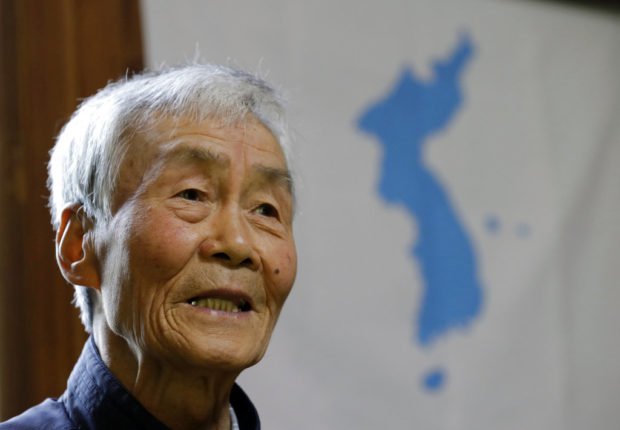GWANGJU, South Korea — He’s spent nearly six decades trapped on enemy soil, surviving 29 years in a prison where he was tortured by South Korean guards before being released to a life of poverty and police surveillance. Now, 89- years-old and bedridden with illness, former North Korean spy Seo Ok-yeol just wants to go home.
“People have a need to die in a place where they are respected,” Seo said, though he worries it could be too late to finally be reunited with the wife and children he left behind.
Seo is among 19 Cold War-era North Korean spies and guerrillas who have served their time in South Korean prison and are pushing to return to the North. Though they are officially free now, Seoul has refused to let them return as it seeks commitments from Pyongyang for the return of hundreds of South Koreans thought held there.
The Associated Press recently spoke with seven of the former spies, all men in their 80s and 90s who insist North Korea is their “ideological homeland.” Though they have seen past efforts to negotiate their return fall apart, the men are filled with renewed optimism after the leaders of the Koreas held a summit last month and pledged to resolve all humanitarian issues caused by their nations’ 70 years of division.
“I wept tears of joy,” 82-year-old Yang Hee-chul, a former spy, said of the summit. “I have a ray of hope that our issue could be resolved.”
In 2000, during a previous thaw in North-South relations that also saw their leaders meet, South Korea sent back 63 North Korean spies and guerrillas. Dozens of other North Koreans who had served time in prison later applied for repatriation, but it never happened and some have since died.
In a written response, South Korea’s Unification Ministry said it was not at this time considering sending back the former spies, adding that the North has not recently asked for them to do so.
Seo was born on a small island off the southwestern coast of the Korean Peninsula, when Japan was its colonial overlord. During the 1950-53 Korean War he volunteered for the North’s Korean People’s Army. After the war ended, he settled in North Korea, and eventually became a spy.
He was captured in 1961, after he had swam across a river into the South for what he said was a mission to “promote Korean unification.”
